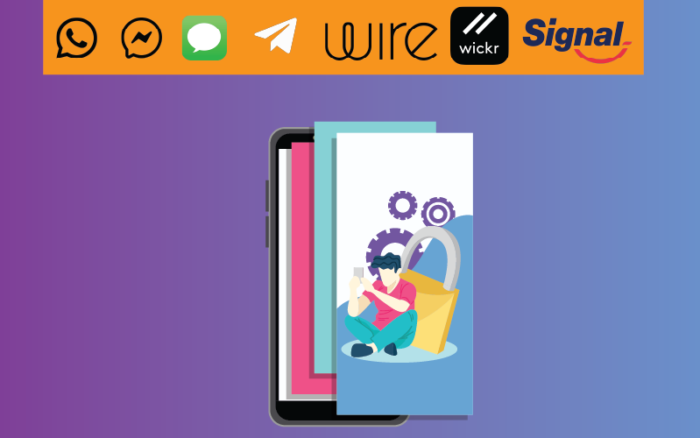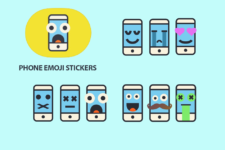We all have secret conversations that we would like to keep just that way. The last thing you want is for someone to see your messages or have them used to serve you ads, whether it’s an embarrassing story, office gossip, or opening up about your feelings. You’re leaving everything exposed if you don’t utilize an encrypted messaging app.
How to Choose a Secure Messaging App
Numerous messaging apps are available, but not all are as secure as they claim. Of course, even with WhatsApp, the world’s most popular messaging app, you should be wary of scams.

It is one of the most popular messaging apps, with over 1 billion users. It’s simple to use and includes features like location and file sharing, gifs, and desktop support. It also uses the industry standard encryption protocol Open Whisper Systems for Signal developed. Perfect Forward Secrecy is a feature of encryption (PFS). This implies that even if someone steals the key to your secret conversation, they can only see the most recent message you sent. Everything else will be kept confidential.
On the other hand, WhatsApp is owned by Facebook, which raises serious security concerns. User data collection is central to this social media giant’s business model, and it has repeatedly failed to keep user data secure.
Facebook Messenger
Although billions of people use Facebook and its messaging services, only some know that their app provides end-to-end encryption. That’s because Facebook did an excellent job of concealing the feature.
Although it is commendable that Facebook introduced this feature, there are numerous reasons why it is at the bottom of our list. The social media behemoth continues to collect information, such as who you text and how frequently you use the app. Not to mention that Facebook became wary in 2018 of multiple data breaches. They’ve become tough to place your confidence in.
Telegram

Over 100 million people use it. True, the platform is simple to use, has many extra features, and is not required to provide any user information to intelligence agencies (as far as we know). However, Telegram is less safe than it would like us to believe.
It appears odd that such a security-oriented messaging app does not enable encryption by default. Many Telegram users need to be aware of this, which defeats the app’s purpose.
Wire
![]()
It checks all the boxes for an entirely safe messaging app: it provides end-to-end encryption, adheres to all European Union data and privacy laws, is open source, and is not required to share data with surveillance services. Furthermore, it is compatible with the most popular browsers, including Firefox, Chrome, Safari, and Opera. Wire does, however, collect and store some user data.
The app’s creators admitted to keeping track of who users contacted, and it’s all saved in plain text. Users’ emails, phone numbers, and usernames are also protected. As per Wire, this information is used to facilitate device synchronization and is deleted once the account is deactivated.
Wickr
This is one of the better secure messaging apps available. It is open source and does not collect user or metadata data. It also has a shredder feature, which deletes all conversations and files shared on the platform. You can schedule when to delete them. Most notably, no phone number or email address is required to register, making it even easier to keep your life private.
Signal
The signal comes out on top for both iOS and Android users. The signal developed an encryption protocol that is now widely regarded as the most secure messaging app protocol available. It provides everything most users require – SMS, video and voice calls, group chats, file sharing, disappearing messages, and so on – without clogging up the app with advertisements or collecting user data. It’s also an open-source platform so that anyone can test it for flaws. Speaking of which, an Israeli security firm may have discovered a potential security flaw, which is why it is always best to use a VPN alongside your favorite secure messaging apps.






